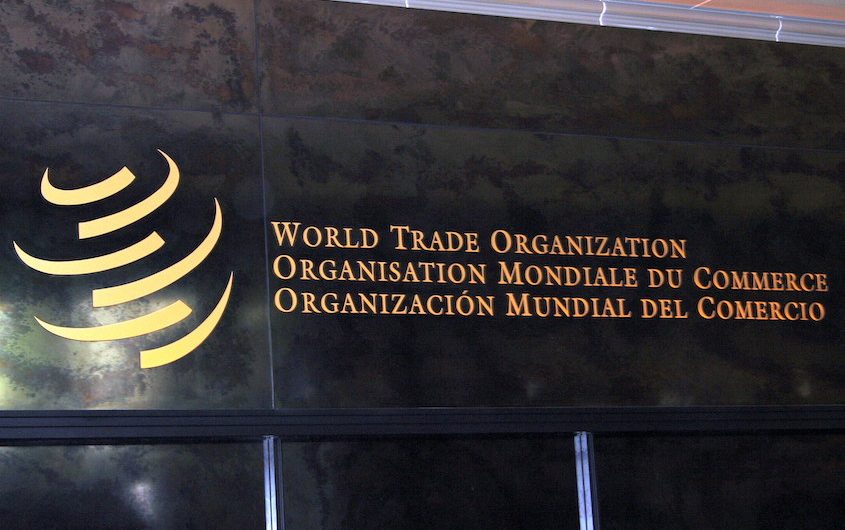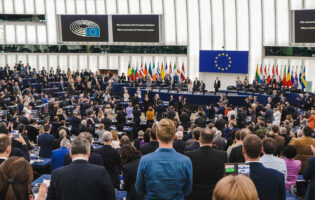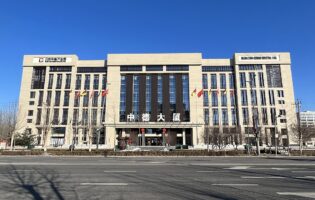
Martin Wippel via Flickr
The WTO and National Security

Peter S. Rashish
Vice President; Director, Geoeconomics Program
Peter S. Rashish, who counts over 30 years of experience counseling corporations, think tanks, foundations, and international organizations on transatlantic trade and economic strategy, is Vice President and Director of the Geoeconomics Program at AICGS. He also writes The Wider Atlantic blog.
Mr. Rashish has served as Vice President for Europe and Eurasia at the U.S. Chamber of Commerce, where he spearheaded the Chamber’s advocacy ahead of the launch of the Transatlantic Trade and Investment Partnership. Previously, Mr. Rashish was a Senior Advisor for Europe at McLarty Associates, Executive Vice President of the European Institute, and a staff member and consultant at the International Energy Agency, the World Bank, UNCTAD, the Atlantic Council, the Bertelsmann Foundation, and the German Marshall Fund.
Mr. Rashish has testified before the House Financial Services Subcommittee on International Monetary Policy and Trade and the House Foreign Affairs Subcommittee on Europe and Eurasia and has advised three U.S. presidential campaigns. He has been a featured speaker at the Munich Security Conference, the Aspen Ideas Festival, and the Salzburg Global Seminar and is a member of the Board of Directors of the Jean Monnet Institute in Paris and a Senior Advisor to the European Policy Centre in Brussels. His commentaries have been published in The New York Times, the Financial Times, The Wall Street Journal, Foreign Policy, and The National Interest, and he has appeared on PBS, CNBC, CNN, and NPR.
He earned a BA from Harvard College and an MPhil in international relations from Oxford University. He speaks French, German, Italian, and Spanish.
Destress and Reform
The Biden administration has reacted strongly to the ruling by the World Trade Organization (WTO) last week against the Trump-era national security tariffs on steel and aluminum. The current White House has effectively removed these tariffs on the European Union, Japan, Canada, and a few other allied and like-minded trading partners. But some of them remain in place, notably on China.
In a statement issued immediately after the WTO’s decision, the Office of the U.S. Trade Representative (USTR) said that “issues of national security cannot be reviewed in WTO dispute settlement and the WTO has no authority to second-guess the ability of a WTO Member to respond to a wide-range of threats to its security.”
The United States was a party to the founding of the WTO in 1995 and played the leading role in the creation of its predecessor, the General Agreement on Tariffs and Trade (GATT) in 1947. Part of that role was to help formulate Article XXI, which lays out the conditions under which a country is allowed to suspend its obligations not to discriminate against trading partners if its national security is at stake. Despite this nuanced approach, recent U.S. administrations have asserted that national security is self-judging.
Much has changed in the global economy since the WTO’s founding. In 1995, Cold War conflicts had ended and there was the expectation that the world was converging on an open, win-win approach to international economic relations. Trade and national security seemed to be entering separate policymaking realms, so there was little reason to think that countries would resort to Article XXI and if that did happen that others would challenge its use.
WTO rules clearly need to be reformed to account for non-market economic behavior like China’s.
Now, however, the international economic system is no longer consensus-based but rather has become conflictual. China’s economic model—its subsidies to industrial production, and its state-owned enterprises—has violated at least the spirit of WTO rules and created economic unfairness in high-standard economies like the United States.
WTO rules clearly need to be reformed to account for non-market economic behavior like China’s. In particular, a broader and more real-world definition is required for what constitutes a “public body” that is prohibited from granting subsidies. That would not only capture state-owned firms but also avoid a repeat of the WTO’s misconceived 2011 ruling in China’s favor.
In its statement, USTR points to this problem, asserting that the “WTO panel reports only reinforce the need to fundamentally reform the WTO dispute settlement system. The WTO has proven ineffective at stopping severe and persistent non-market excess capacity from the PRC and others that is an existential threat to market-oriented steel and aluminum sectors and a threat to U.S. national security.”
What should the United States and the European Union do now that USTR has rejected the WTO ruling on U.S. steel and aluminum tariffs? Two steps come to mind.
First, they should jointly affirm the value of the WTO and a rules-based global economic order vs. the law of the jungle. Within the U.S.-EU Trade and Technology Council that met for the third time last week near Washington, they should make the reform of WTO rules a priority of its working group focused on “Global Trade Challenges.”
Second, they should refrain from adding stresses to the trading system. The main area where this could occur in the short term relates to climate. The EU should forswear a WTO case against the local content rules governing the electric vehicle subsidies in the U.S. Inflation Reduction Act. For its part, the United States should reject the potential temptation to justify those measures as essential to its national security, whether through WTO Article XXI or the equivalent U.S. law, section 232 of the 1962 Trade Expansion Act.









